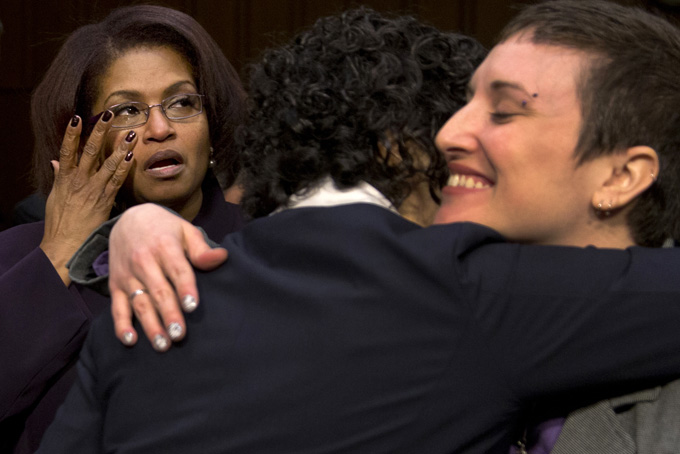Boxer said during testimony before the subcommittee that “immediate steps must be taken to prevent senior commanders from having the ability to unilaterally overturn a decision or sentence by a military court.”
Taylor, the acting general counsel, said in his written testimony the Defense Department is examining the role the convening authority plays, including a commander’s power to set aside a court-martial’s findings. But Taylor also stressed that commanders have long held this authority and it is directly tied to the need for the “portability” of military justice throughout the world and the need for senior officers to maintain discipline in the ranks.
In the wake of Franklin’s decision, Reps. Jackie Speier, D-Calif., Bruce Braley, D-Iowa, and Patrick Meehan, R-Pa., introduced legislation Tuesday in the House of Representatives that would strip military commanders of the power to overturn legal decisions or lessen sentences. Their bill would amend the Uniform Code of Military Justice to take away the power of a convening authority to dismiss, commute, lessen, or order a rehearing after a panel or judge has found the accused guilty and rendered a punishment.
Sen. Claire McCaskill, D-Mo., a member of the personnel subcommittee, plans to introduce legislation soon that would change the Uniform Code of Military Justice by preventing a convening authority from overturning a decision reached by a jury. The legislation also would require the convening authority to issue a written justification for any action.
“This is not a crime that we’re going to train our way out of,” said McCaskill, who emphasized the need for the strong and effective prosecution of offenders.
Brian Lewis, a former Navy petty officer, told the subcommittee not to forget that many victims of sexual assault and harassment in the military are male. Lewis said he was raped in 2000 by a non-commissioned officer who outranked him. His commanders ordered him not to report the crime to Naval Criminal Investigative Service. Lewis said he was later misdiagnosed with having a personality disorder and he was discharged from the service in 2001.
“I carry my discharge as an official and permanent symbol of shame, on top of the trauma of the physical attack, the retaliation and its a
ftermath,” Lewis said.
Sen. Angus King, I-Maine, asked whether the culture would change if the laws were overhauled. Lewis described the limitations of military law, arguing that it was unconscionable that punishment is solely at the discretion of a single individual and the offense of sexual assault is merely a year in prison.
“The military does not value what happened to the victim,” Lewis said.

